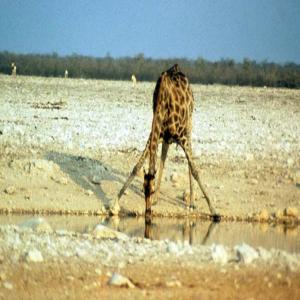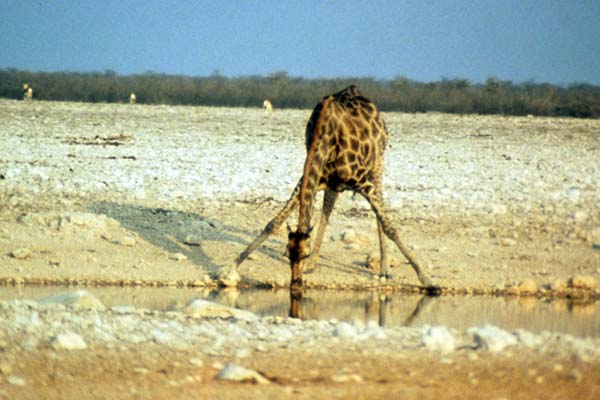Episodes

Monday Aug 08, 2011
The WildLife: Sounds of Orca Whales, Ari Daniel Shapiro
Monday Aug 08, 2011
Monday Aug 08, 2011
Ari Daniel Shapiro, a wildlife biologist and radio contributor, shares his research on the vocalizations of killer whales. He reveals to “The WildLife” host Laurel Neme a number of interesting facts about the sounds of killer whales. Did you know they use both high and low frequencies in the same vocalization? He’ll also divulge what it’s really like to undertake this demanding kind of research in remote and frigid locales. While earning his PhD in biological oceanography at the Massachusetts Institute of Technology (MIT) and the Woods Hole Oceanographic Institution, Ari Daniel Shapiro studied the vocalizations of killer whales in Norway. Now he uses his own voice and knowledge to tell stories about science on radio and other media. He's a regular contributor to a variety of national public radio programs and the host of both the Podcast of Life and Ocean Gazing. You can find the video on Ari’s killer whale research discussed in this interview as well as other material on his website, www.aridanielshapiro.com. This episode of “The WildLife” aired on The Radiator, WOMM-LP, 105.9 FM in Burlington, Vermont on March 29, 2010.

Monday Feb 07, 2011
The WildLife: Field Vet in Patagonia, Marcela Uhart
Monday Feb 07, 2011
Monday Feb 07, 2011
Marcela Uhart shares her adventures as a wildlife field veterinarian in Patagonia, Argentina. She reveals to “The WildLife” host Laurel Neme the difficulties of handling and monitoring the health of diverse wildlife populations, from elephant seals and southern right whales to penguins and other seabirds. For instance, how do you immobilize a 1-2 ton animal? If you haven’t been to Patagonia, you’ll want to visit this rugged wilderness that stretches from the granite peaks of the Andes mountains to the desolate Atlantic coast. There, southern right whales gather to breed, a sizable southern elephant seal colony makes its home, and the world's largest Magellanic penguin colony lives.
Born and raised on a ranch in the Argentine pampas, Marcela Uhart has been a veterinarian with the Wildlife Conservation Society's (WCS) Field Veterinary Program since 1996. She spends much of her time in the field and often collaborates with numerous non-governmental organizations and researchers in Argentina while providing veterinary expertise in wildlife handling and immobilizations, translocations and health monitoring of wildlife populations. She has worked on a variety of species, including sea lions, elephant seals, penguins, small carnivores, caiman and raptors, as well as "agricultural-conflictive" species such as rheas, large rodents and large ungulates, including guanaco and pampas deer. Marcela has helped to introduce new policy measures to benefit wildlife, such as the establishment of a program to control agricultural pesticide use, implemented with the support and endorsement of an Argentine government research agency known as INTA. Marcela also acts as a consultant to field researchers and local conservation groups and has traveled to Bolivia, Chile, Ecuador and other Latin American countries to provide her services. In November 1998, she became one of the founding members of the first Association of Latin American Wildlife Veterinarians. She is also the IUCN’s Wildlife Health Specialist Group (WHSG) coordinator for South America. In this role she hopes to reinforce and revitalize the relationship between wildlife specialists from the developed and developing nations. In fact, since she started at WCS, Marcela has worked tirelessly to address the critical shortage of training opportunities for young veterinarians in Latin America. Professional outreach remains a major focus of her work, as does collaborating with local universities and leading workshops in several Latin American countries. This episode of “The WildLife” aired on The Radiator, WOMM-LP, 105.9 FM in Burlington, Vermont on February 7, 2010.

Monday Jan 24, 2011
The WildLife: Whale Poop (and Whales), Joe Roman
Monday Jan 24, 2011
Monday Jan 24, 2011
Joe Roman, Assistant Professor at the University of Vermont’s Rubenstein School for the Environment and Natural Resources and author of the book Whale, discusses whale dung and its importance to the ecosystem. He tells “The WildLife” host Laurel Neme that, contrary to most other marine species, whales feed at the ocean depths but defecate near to the surface, and that these whale feces, which are loaded with nitrogen, supply vital nutrients that fertilize their ocean gardens. We also discuss what whale poop looks and smells like, how to find it, and his other whale-related research.
Joe Roman was born and raised in New York and counts King Kong as an early conservation influence. He is a conservation biologist, as well as a Fellow at the Gund Institute of Ecological Economics, Assistant Professor at the University of Vermont’s Rubenstein School for the Environment and Natural Resources, and research associate at the New England Aquarium. He received his PhD from Harvard University in 2003 in Organismic and Evolutionary Biology and a Master's degree in Wildlife Ecology and Conservation from the University of Florida. During a fellowship with the American Association for the Advancement of Science, he helped start an interdisciplinary program on Biodiversity and Human Health at the US Environmental Protection Agency. His most recent book, Whale (Reaktion Books), provides an in-depth look at the cultural and natural history of these majestic aquatic mammals. His next book, titled Listed: Dispatches from America's Endangered Species Act, will be released by Harvard University Press in spring 2011. His most recent research paper, which has been featured on National Public Radio and elsewhere, focuses on what he calls “the whale pump” and how the dung of these marine mammals enhance primary productivity in a coastal basin.This episode of “The WildLife” aired on The Radiator, WOMM-LP, 105.9 FM in Burlington, Vermont on January 24, 2010.

Monday Mar 29, 2010
The WildLife: Killer Whales & Vocalizations, Ari Daniel Shapiro
Monday Mar 29, 2010
Monday Mar 29, 2010
Ari Daniel Shapiro, a wildlife biologist and radio contributor, shares his research on the vocalizations of killer whales. He reveals to “The WildLife” host Laurel Neme a number of interesting facts about the sounds of killer whales. Did you know they use both high and low frequencies in the same vocalization? He’ll also divulge what it’s really like to undertake this demanding kind of research in remote and frigid locales. While earning his PhD in biological oceanography at the Massachusetts Institute of Technology (MIT) and the Woods Hole Oceanographic Institution, Ari Daniel Shapiro studied the vocalizations of killer whales in Norway. Now he uses his own voice and knowledge to tell stories about science on radio and other media. He's a regular contributor to a variety of national public radio programs and the host of both the Podcast of Life and Ocean Gazing. You can find the video on Ari’s killer whale research discussed in this interview as well as other material on his website, www.aridanielshapiro.com. This episode of “The WildLife” aired on The Radiator, WOMM-LP, 105.9 FM in Burlington, Vermont on March 29, 2010.

